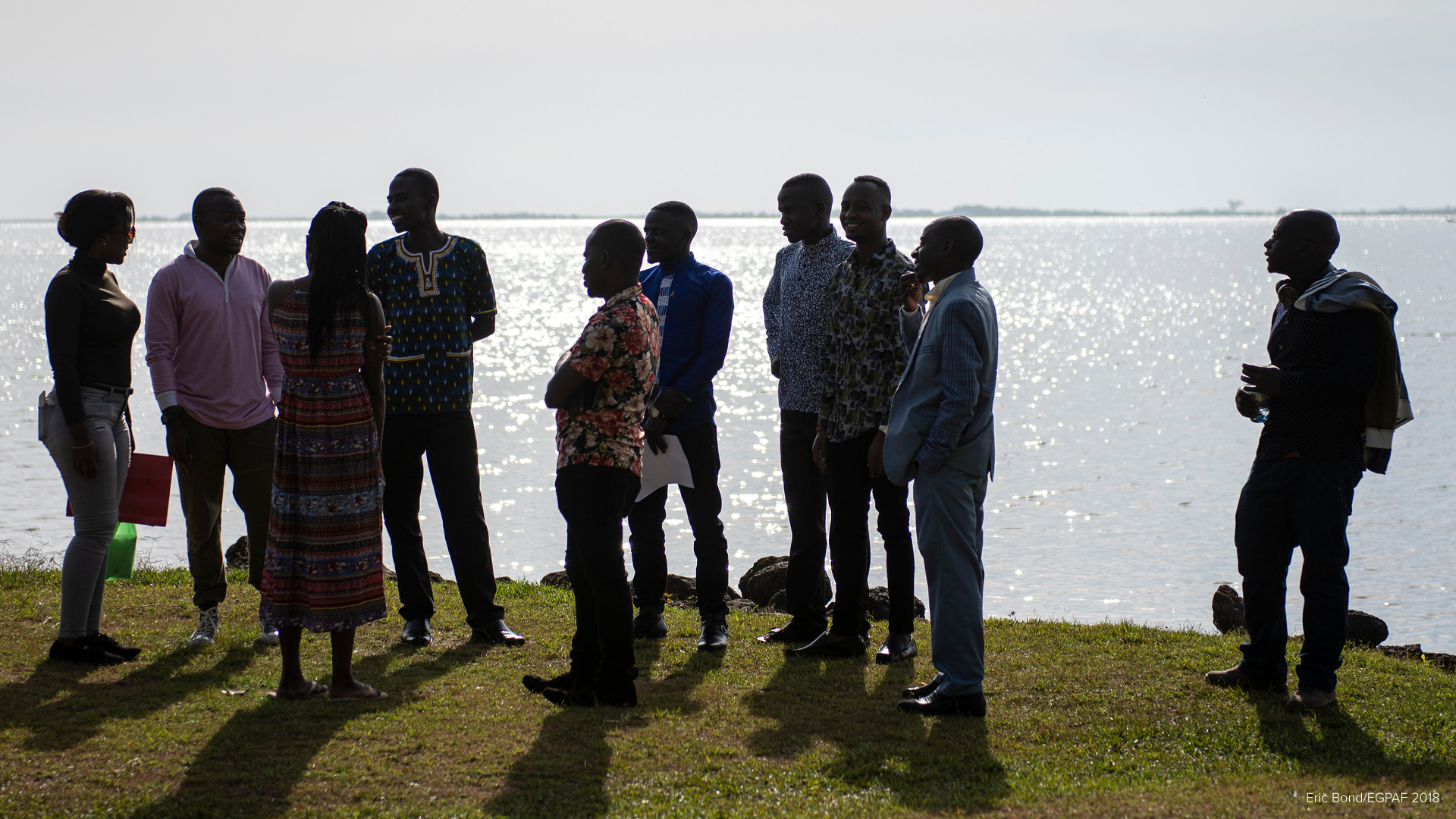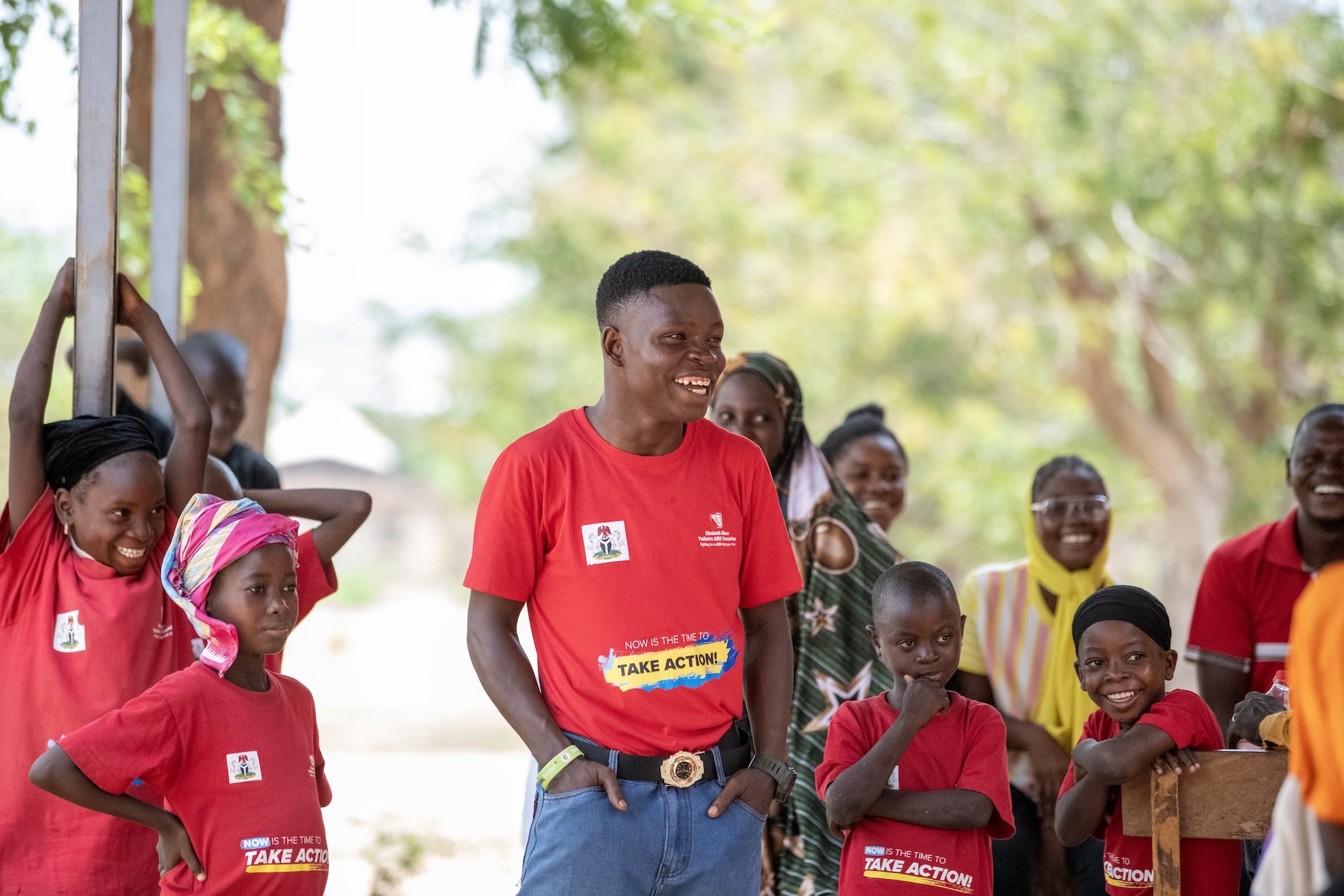The Jyothi Hospital in Miryagluda, India, provides counseling to pregnant and breastfeeding women through Solidarity and Action Against the HIV Infection in India (SAATHII), a nongovernmental organization supported by the Elizabeth Glaser Pediatric AIDS Foundation (EGPAF).
One of the counselors, Bommu Anitha, knows firsthand what it is like to receive a diagnosis of HIV. At 19 and HIV-positive, Anitha is the head of her family—after losing her father, mother, and brother to AIDS-related illnesses.
“My father died three years ago,” says Anitha. “My mother died when I was very young. I also lost my brother who was HIV-positive. I have one more brother and he is [HIV-] negative. I’m not thinking about getting married for now because I have to take the family responsibility. I am the only one left.”
Anitha’s job is to counsel pregnant women and describe the HIV services that are available to them. An accredited social health worker, Anitha explains, sympathizes, and advocates for her clients. She may make follow-up home visits, riding buses for hours, then spending time with them, counting pills, asking questions about adherence to treatment, and listening to their concerns.
“It’s very difficult to convince them to come to the hospital for follow-up services,” says Anitha. “Whenever I visit the home of pregnant women, I relate my lifestyle. I tell them ‘I am supporting you, and I am living very healthy because I’m taking my medicine. You have many services available to you. If you avail yourself of the services you will become healthy.’ In this way, I motivate them.”
Saved From Suicide
“I was very afraid when I came to know about my status,” says Anitha. "I thought about committing suicide, but the people at the government center gave me a good counseling and supported me with everything.”
Unfortunately, Anitha’s feelings of despair upon learning of her HIV-positive diagnoses are all too common, particularly for women.
“I came to know about my status in the fifth month of my pregnancy when I came for an antenatal checkup,” says Panga Ramalakshmi, one of Anitha’s clients. “At that time, my husband also was tested. He was [HIV-]positive as well. At first, I wanted to kill myself. But Anitha encouraged me to live."
“When the counselor disclosed my status to me, I left the reports behind; I just got up and left, thinking I would commit suicide. I went home crying, and my husband was there. He consoled me and said ‘If you want to commit suicide, I will join you. Otherwise we will live together.’”
Anitha’s visit to Panga helped to transform the expectant mother’s despair into hope.
“She said to me: ‘I am living with HIV. Why don’t you live too?’” recalls Panga. “She said ‘I assure you that you will have a [HIV] negative baby. I will do everything to help.’”
“She had found my address on the reports and came to my house. She explained all the services, and she came with me for the CD4 testing [to establish viral load] and for the delivery [of my baby]. I had gone to many hospitals, but nobody had agreed to conduct the delivery.”
“Anitha told me: ‘Don’t worry. We will give you all the information about the services available.’ She also told me about the medicine that will protect the baby from HIV. And she went with me to my delivery at a government hospital. We had a good relationship after that.”
Coping with Stigma
Nobody in Anitha’s village knows her HIV status. Only her aunt, her father’s sister, is aware. Anitha says that she is fortunate to have a cooperative and helpful family member.
On this day, Anitha is leading a study circle at the hospital. She looks around at the group of mothers listening to her and says, “Because of them, I’m still alive. And I’m happy about that.”
Stigma remains a barrier for many people living with HIV in India and around the world. Women often bear the brunt of stigma, and frequently find themselves abandoned by spouses and other family members after disclosing their HIV-positive status. Some health facilities refuse to treat HIV patients. But courageous counselors like Anitha are providing crucial support for those women, helping them access treatment—and helping them realize that they are not alone, and that with proper treatment and care, they can live can full lives.
EGPAF and SAATHII have been partners since 2002. Together, they have tested more than 2 million women, supporting prevention of mother-to-child transmission of HIV (PMTCT) services in 1,085 private and faith-based health facilities in high HIV-prevalence regions.




